Article begins
We become nervous and are awed by the stillness that takes over space as darkness looms and fallsonto the city. Total darkness momentarily hesitates and one feels an excitement, a wondrous anxiety looking for the edges of light.Horizons change and relations to otherness recalibrate.
A queer epistemology is one that necessarily weaves together a Deleuzian dislodging of categories, a bending of commonsense notions of humanity and a sensorial knowledge of transgression. Following Loïc Waquant’s notion of a carnal sociology, “the body becomes an instrument of investigation and a vector of knowledge.”
Both queer and dusk exemplify what Juana Maria Rodríguez calls “amorous gestures” toward future possibilities. She writes, “Gestures emphasize the mobile spaces of interpretation between actions and meanings…they register the kinetic effort of communication.” Dusk dislodges static categories and the supposed settled notions of self and provokes a dynamic corporality. An anxiety of movement towards night, towards new settings of interactions, and, indeed, other forms of intimacy. While dusk can be an isolating force, acting as a reminder of the separation of self from other(s) as vision becomes limited, I read dusk differently. I fantasize about it. Away from neoliberal, individual exchanges of value and recognition, the dusk can foster collective experiences and possibilities in the sense that scholars such as José Esteban Munoz have refuted queer as antisocial and rather affirmed its future promises.
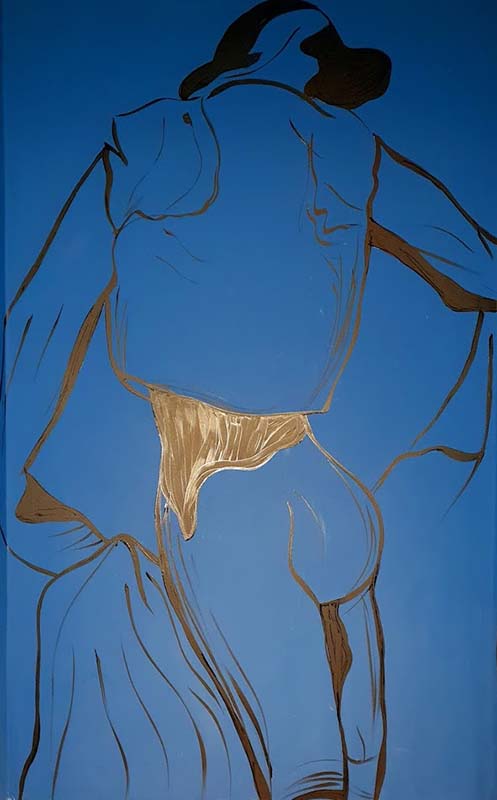
Fantasy is not the opposite of reality; it is what reality forecloses, and, as a result, it defines the limits of reality, constituting it as its constitutive outside…the critical promise of fantasy, when and where it exists, is to challenge the contingent limits of what will and will not be called reality. Fantasy is what allows us to imagine ourselves and others otherwise; it establishes the possible in excess of the real; it points elsewhere, and when it is embodied, it brings the elsewhere home.
―Judith Butler, Undoing Gender
Are you passive?
Uh, yes. I can be.
What are you into?
Being spanked and fucked.
Hmm, I’ll get back to you.
Uh, wait. I’m not into edging.
His talk and his body mimicked Grindr text exchanges. I couldn’t focus. It wasn’t like I had imagined. I had dreamed of stretching out and across, our skin forever touching. Surfaces not pricks. The sunlight waned; the sharp reflections of light gone from midday. I realized that I was late.
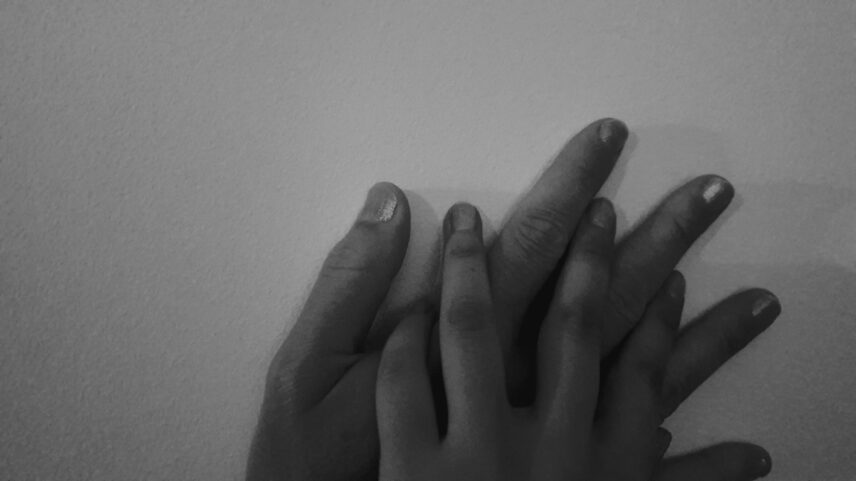
“Thyago, I’ll be home soon, real soon. I heard something about an epic midnight storm. Exciting. I just need to stop by the store and get a few things for dinner. Tonight is your specialty, right?”
“Yeah, you know which dish. Look, there’s something I want to talk to you about. Just hurry, ok? I want to eat earlier today.”
I paused and flipped through my memory wondering what I might have done. Which transgressions or infidelities had I committed? To be honest, I haven’t done anything, I thought to myself. Oh, god, it must be something from Instagram, but I changed my password. Jesus fuck!
“Sure, sure. See you soon.” Click.
I had planned on a people-watching stroll to the store. Cruising, really. I was tall enough to exude confidence but not intimidation. My smile was effortless and I dressed simply but always neat. The gait of a trust fund bro. As I gestured to the fromager for a request, the poor boy seemed mesmerized by my long fingers and deep skin. He found only enough strength to ask me to repeat my order.
“It’s ok, my friend. It is just cheese, I suppose,” I said nonchalantly.
Both gracious and disparaging in the shortest of phrases. A gift. The truth was that I myself was distracted. Hesitant second-guessing. My head was foggy. I was not myself, as I proceeded absent-mindedly to select fruits and vegetables. All either too green or too ripe, some items with obvious bruises.
There were times when the light would catch and set off a glow from my hazel eyes. I felt it. I knew when it happened. A rise, a vibrancy that always drew Thyago to me. I relied on this sparkle play just as a magician depends on sleight of hand. Skilled deception is, after all, an aptitude of the few.
As I mechanically gathered the two reusable sacks full of mediocre produce, a bunch of cilantro was somehow squeezed up to the bag’s precipice. The teenage cashier smiled equally mechanically and suggested that I “have faith in God.” Such is popular Catholicism in urban Brazil. The cilantro teetered on the brink, unsure of the immediate future, then fell before I exited the store and was quickly pitched into the trash by a floor manager.
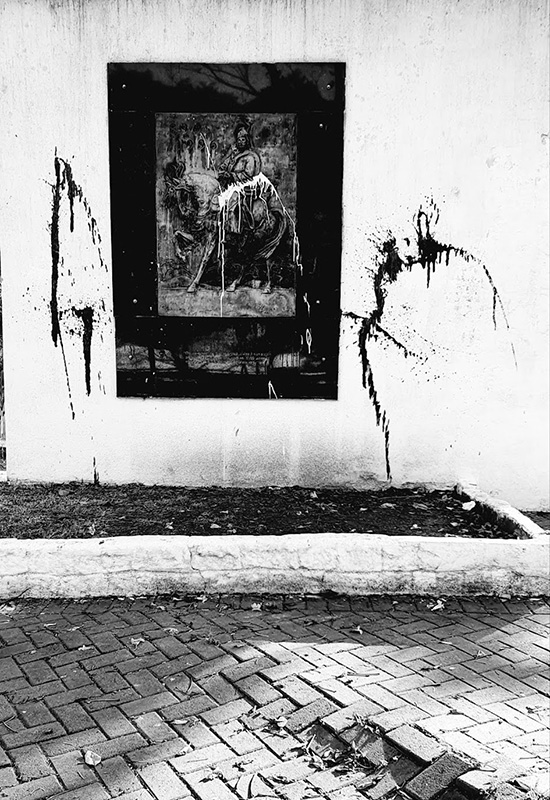
Grocery stores, arcades, casinos, they are all places of temporal distraction. They are always on. Turned on. Seemingly limitless energy without a second thought. The city is different, much more complex. Artifical brightness contrasts with natural decay. Farcical optimisim in modernity never can quite cover up the humility of the planet, no matter how much we try to fake control.
I heard there was a stark storm approaching. I settled my thoughts on Thyago, their openness to take in and give forth. A true switch. Impossible to pin down. And, why would I want to do that to them anyway?
The sun’s rays, noticeably weaker than even a week before, gently pierced the windowpane and filled up a slim rectangle of the living room. Thyago enjoyed taking a break and sitting in this ephemeral greenhouse. They crossed their legs, examined the odd patterns of hair as they gazed up towards the knee. They cross-checked and reconfirmed that their body was asymmetrical. Thyago wondered if I noticed these things, if I cared, if bodies became more misaligned over time.
And so it was. The sun felt warm and inviting and Thyago considered lying down on the plush hunter green carpet to take a nap before I arrived. A nap of confession, a nap of desire, a nap to imagine a real future. They put on white retro sunglasses and stretched out to let their short, stocky frame fill in the lit space. Thyago knew that in 15 minutes dusk would begin in earnest and the carpet would become desert cold.
“I’m home. I left the groceries on the counter. Let me take a quick shower and I’ll be back out to help you with the ratatouille.”
Thyago had yet to turn on any lights in the apartment, holding on to the calm setting of natural light. Conversation, listening to music, they were better this way. The rush of the water coming up the pipes and the onset of the bathroom exhaust vents slapped Thyago in the face. They readied themselves for “the talk” later with me. Even in the gloam, it was plain that the fruits and vegetables were damaged goods. Thyago picked out his favorite paring knife and began to dissect salvageable parts of the slop I had brought home.
“Your sister called, Bernard. Your father has been experiencing violent panic attacks. A line between the psychological and the physical, she said, mimicking the doctor. We are to blame, she said; we don’t do enough for the family. It’s hard to take.”
“Don’t mind her. She’s lonely and bitter. Come here.”
The shower had reenergized and polished me. My eyes filled the room surrounding Thyago. Light reflected everywhere. The windows, the knife, the faux chandelier that bicha Lin had given them. Trashy fag. It was all glittering.
“You need to talk to her, Bernard. Talk to your father, too. Your family is bleeding all over me. Why do you protect them and not me? Why? They talk behind your back. They turn shame into hate. Why?”
Thyago wavered, unsure of where they were going with it all and became more demonstrative with the paring knife, threatening both of us. I disarmed Thyago and held them close. I caressed Thyago’s chest and we both breathed into each other.
The ratatouille was bitter and unseasoned. It didn’t matter.
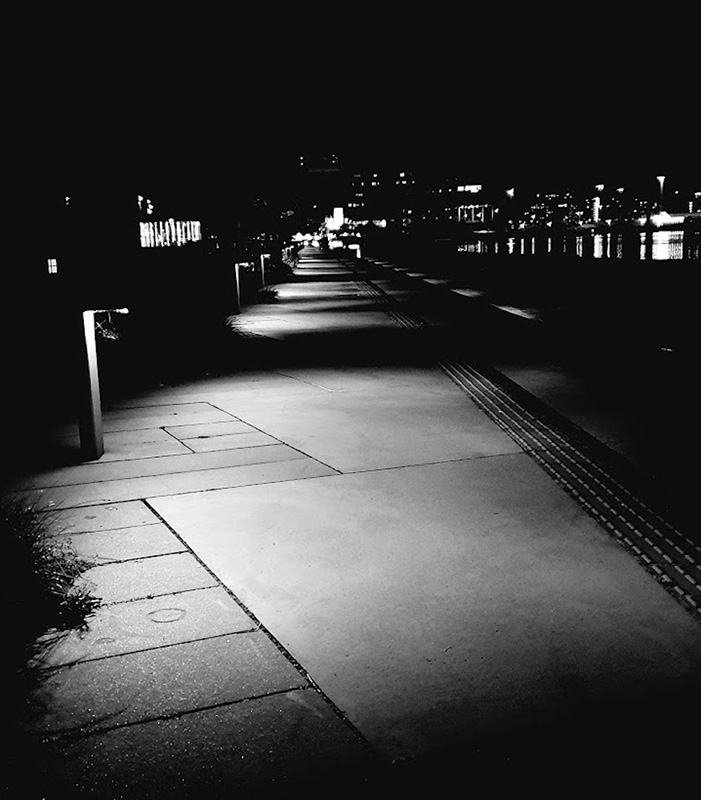
Darkness had settled, accented by faraway flickers of a potential thunderstorm dotting the horizon. Odd for the time of year. Meteorologic reports clashed with common sense. Well-trimmed shrubs grew at an accelerated pace and overtook sidewalks. The proportions of the city recalibrated.
Thyago and I never bothered to install curtains or blinds on any of the windows. We were fine with it. I dimmed the lights further and the apartment went dark.
The apparent lightning from afar never arrived and the night never ended. Earth had stopped rotating. Darkness refused to lift. Thyago and I didn’t wake up. No one did.
Yet the slumber was not an outage. Bodies rearranged themselves. Windows and houseplants and the leftover vegetables regrouped, exchanged material and nutrients to survive. We/they touched, stretched out with inquisitive intent. Unashamed and determined, Thyago/I listened for life, tasted energy, and hid nothing. Unrecognizable and quotidian, tense and flowing, concerned and imaginative.
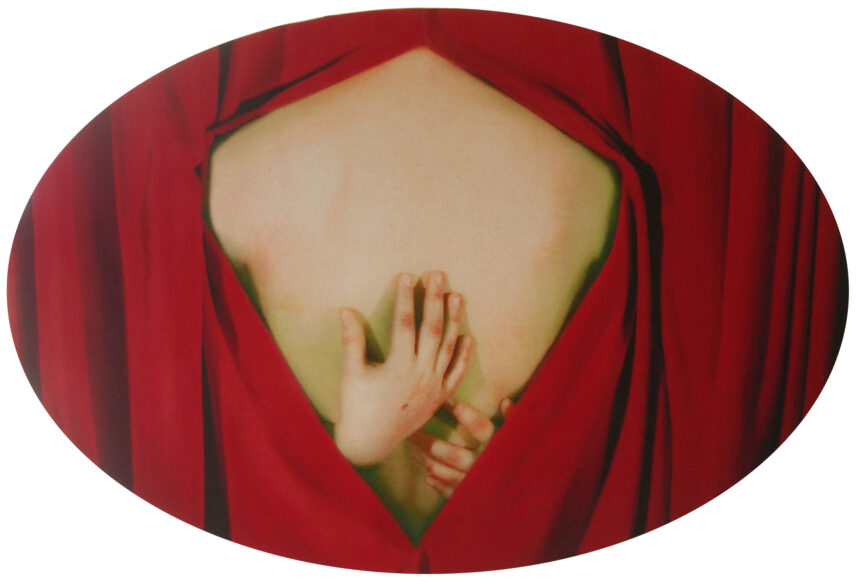
The convergence of dusk and queer is a fantasy that features the recuperation and rearticulation of invigorating energies. Just as the proliferation of artificial light periodically shields us from the anxieties and nervous excitement of dusk, the aggressive branding of “pride” and modular homosexuality as units for exchange and profit obfuscates the dissonant moans of off-the-script queerness. How do feelings function in the realm of the social, Rodríguez asks the reader. Feelings, in fact, “exceed us” and, I would add, this condition is more acute when light fades. The grainy image of two, three, multiple hands searching for each other, stretching out interlaced, fingers prickly with sensation, desiring connection, floods my head. A queer rush in the twilight.
At their most progressive, philosophers, art historians, and social scientists have implied that dusk is a transitional phase towards revelation and consequent knowledge. I suggest that we, scholars, artists, activists, lovers, partners, must push further in our writing, teaching, public presence, and relationships, beyond the idea that dusk induces mere reflection, which perhaps becomes knowledge or simply a rumination on what has already happened. This push comes from fiction so that we can feel dusk and feel darkness as opportunities to explore relational intimacies and vulnerabilities as part of emergent urban ecologies. The city offers a diverse palette of sensorial, multispecies material to explore. Anthropocenic fantasies. Breathing into each other. Fiction more effectively evokes the ineffable, ambiguous, and immersive qualities of dusk.
Author’s note: I thank Ben Junge for insights on the necessity of pleasure in queer social theory. I also thank Natalie Konopinski for her sharp, constructive editing suggestions and overall belief in this essay. In addition, I would like to thank Eiko Honda and Gabriella Martin for their support and helpful comments on earlier drafts.

